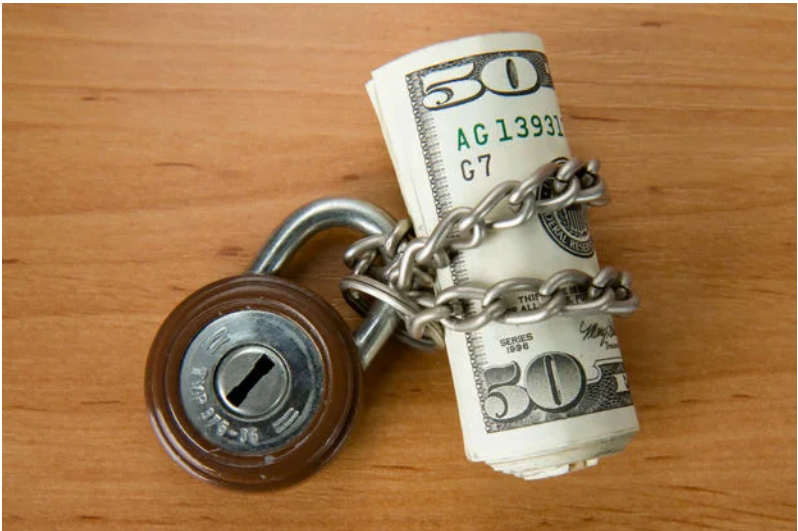Renting a new office, retail space, or commercial property requires careful research. You need to ensure the space fits your business operations and attracts your target audience. After finding the perfect property, most business owners sign the lease without hesitation. However, there’s one more factor to consider: the security deposit. Leasing commercial property often involves paying a significant security deposit upfront, which can be a considerable financial burden.
What Is a Security Deposit?
A security deposit is a payment a tenant gives to the landlord when signing a lease. It’s not just a random fee—this deposit protects the landlord if the tenant fails to meet their lease obligations or damages the property.
Often referred to as “damage deposits,” these funds allow the landlord to cover repairs or unpaid rent. In most commercial leases, the security deposit equals one month’s rent. However, it can be higher, depending on the landlord’s policy. The landlord holds this deposit throughout the lease term and returns it when the lease ends, provided the tenant adheres to all obligations and keeps the property in good condition.
How to Negotiate for a Lower Security Deposit
Make a Reasonable Request
Paying rent is already a significant expense, and adding a security deposit can strain your budget. However, you can sometimes negotiate a lower deposit.
Some landlords may insist on a deposit equal to one month’s rent to protect their investment. After all, they’re renting to a new tenant, hoping the business succeeds and that the tenant doesn’t damage the property. While understandable, some landlords may be open to negotiation.
You can propose a reasonable amount, such as a security deposit equal to 80% of one month’s rent. In many cases, landlords are willing to compromise, especially if you present a compelling offer.
Leverage Your Financial Standing
If you have a strong credit history and solid financials, use that to your advantage. Landlords are more likely to reduce the security deposit if they feel confident you can meet your rent obligations.
Additionally, consider market conditions. If the commercial space has been vacant for a long time or there’s competition for tenants in the area, this may give you more leverage in negotiations. Pointing out the property’s vacancy history or the number of other available spaces can sometimes persuade the landlord to lower the deposit.
Consider a Letter of Credit
If the security deposit is higher than you can afford, consider using a letter of credit. A letter of credit, issued by your bank, serves as a guarantee of payment. This option is viable if you have a strong relationship and good credit history with your bank.
However, not all landlords accept letters of credit. But for those who do, this option can help you avoid paying a large deposit upfront while still satisfying the landlord’s need for security.
Personal Guaranty Agreement
Another option for negotiating a high security deposit is a personal guaranty agreement. In this case, you agree to personally cover the rent if your business defaults. However, this is a risky strategy because you put your personal assets at risk if you can’t meet your lease obligations.
To reduce your risk, you might partner with someone willing to share the responsibility. A business partner can help you negotiate a lower security deposit and share the risk, making it less burdensome for you personally.
Conclusion
Security deposits in commercial leases can be significant, but they aren’t always set in stone. Whether through negotiation, leveraging your financial standing, using a letter of credit, or considering a personal guaranty agreement, there are several ways to reduce the burden of a large deposit. Just be sure to understand the risks, especially when offering personal guarantees, and always keep your end of the agreement to protect your assets and maintain a positive relationship with your landlord.
Need assistance with your 1031 Exchange or DST? We’ve got you covered!
We’ve prepared a comprehensive, free e-book designed to guide you in achieving your long-term business goals or acquiring that dream property you’ve been eyeing.
Meet The LeveragedCRE Investment Team
Phill Tomlinson and Eric Butler are seasoned commercial real estate brokers with over 44 years of combined experience. They lead the LeveragedCRE Investment Team at Commercial Properties, Inc. (CPI) in Scottsdale, Arizona, specializing in investment sales and tenant/landlord representation across the Phoenix and Scottsdale submarkets.
The team leverages their extensive knowledge and expertise to help investors and property owners maximize their returns and navigate complex real estate transactions with confidence.
Stay informed with the latest in Commercial Real Estate strategies designed to enhance your income property investment results by bookmarking www.leveragedcre.com. Let us help you stay ahead in the market!


